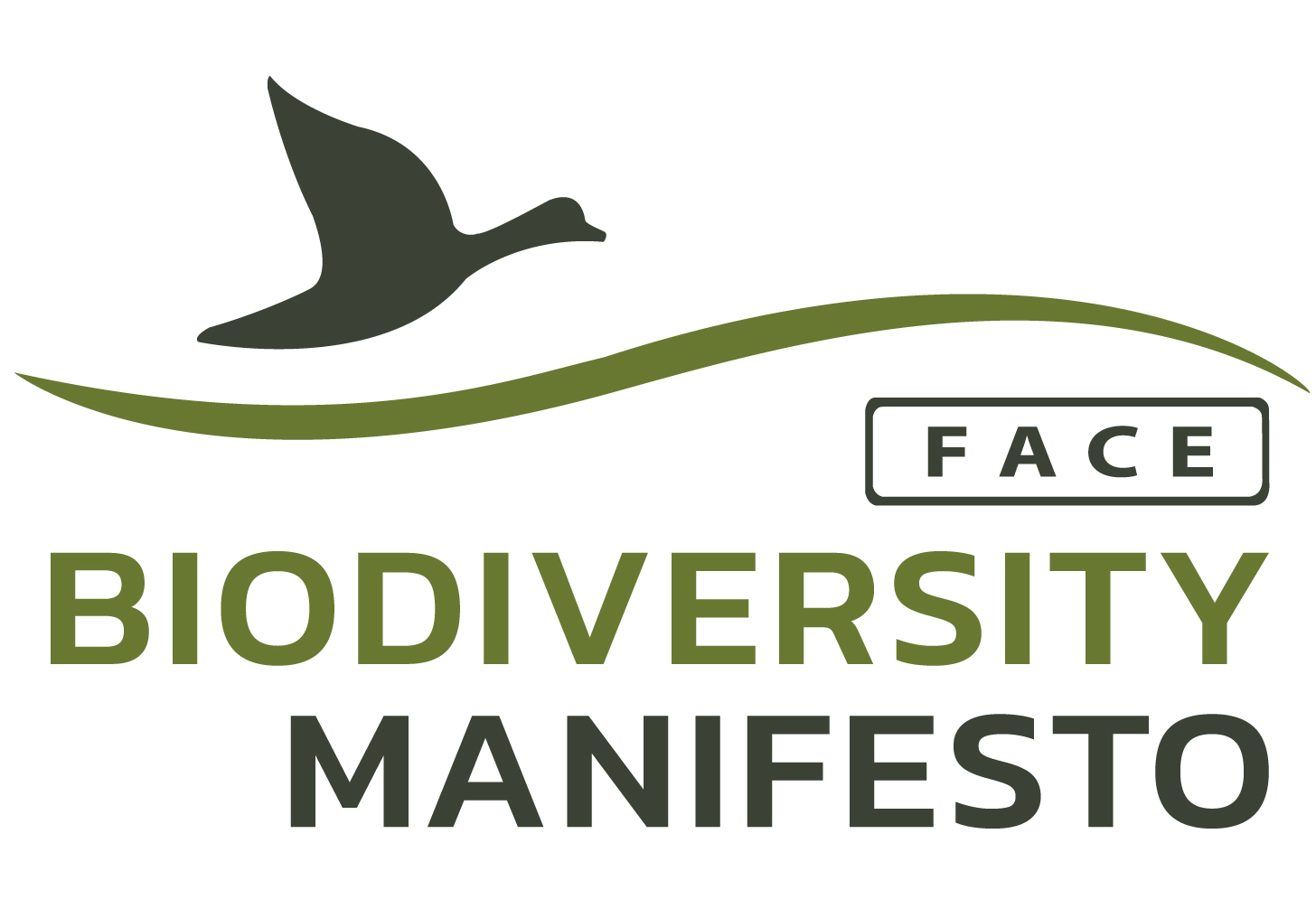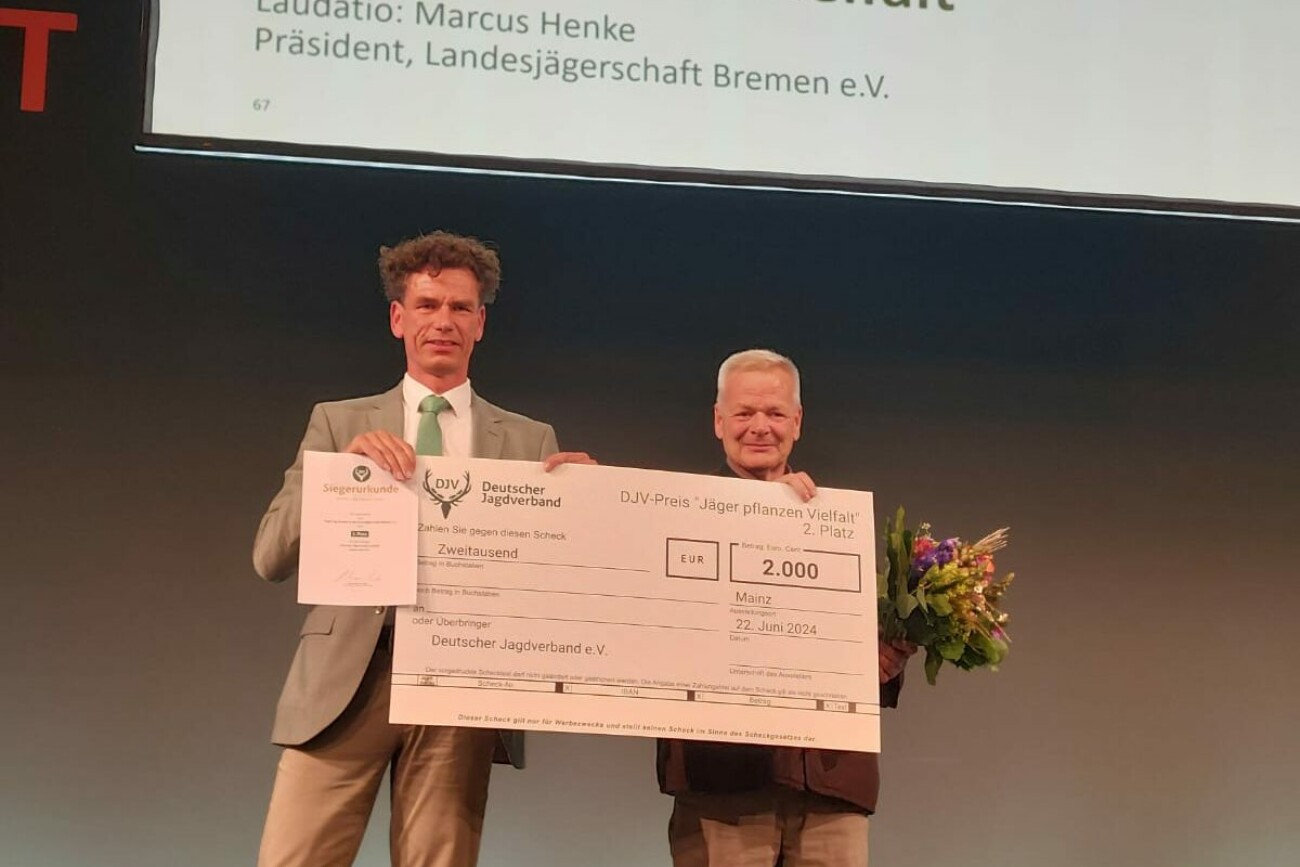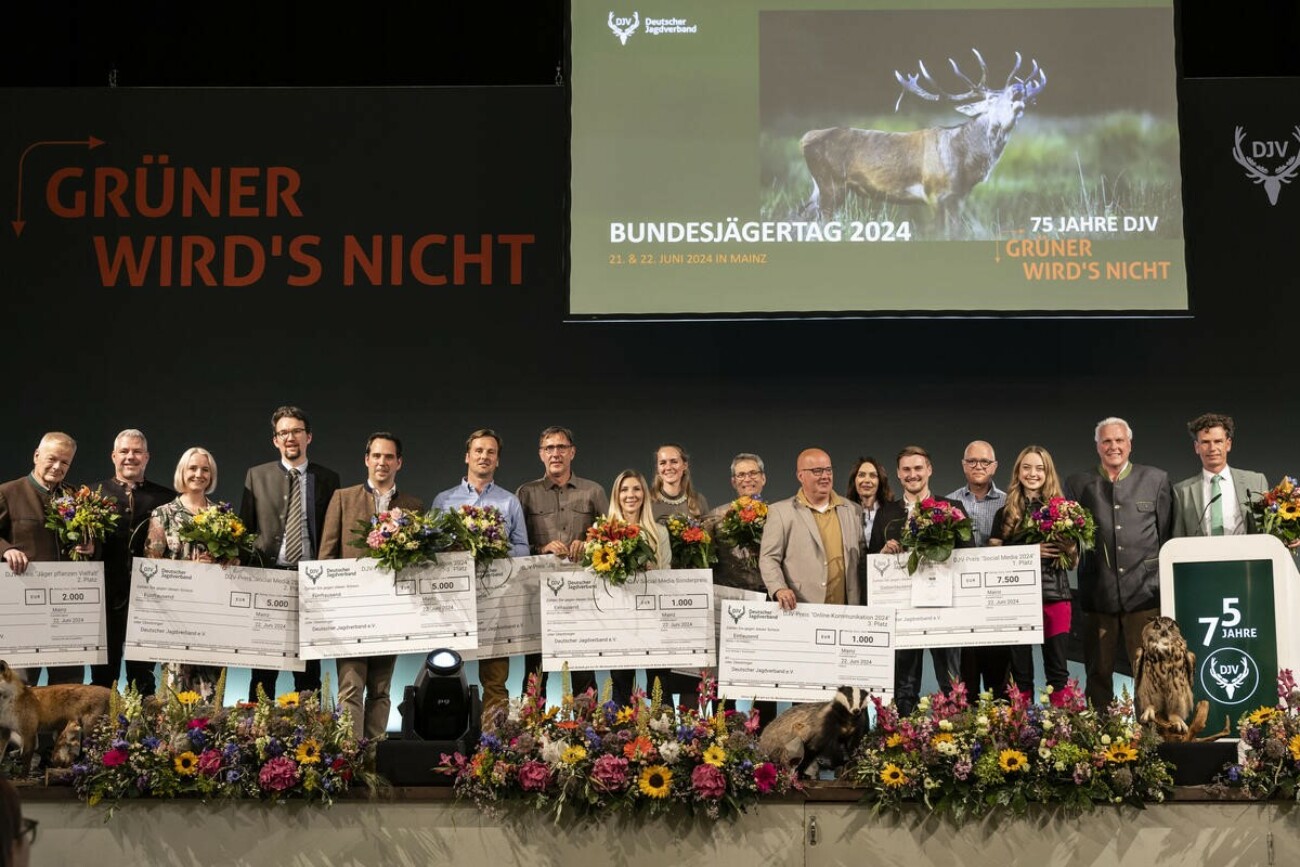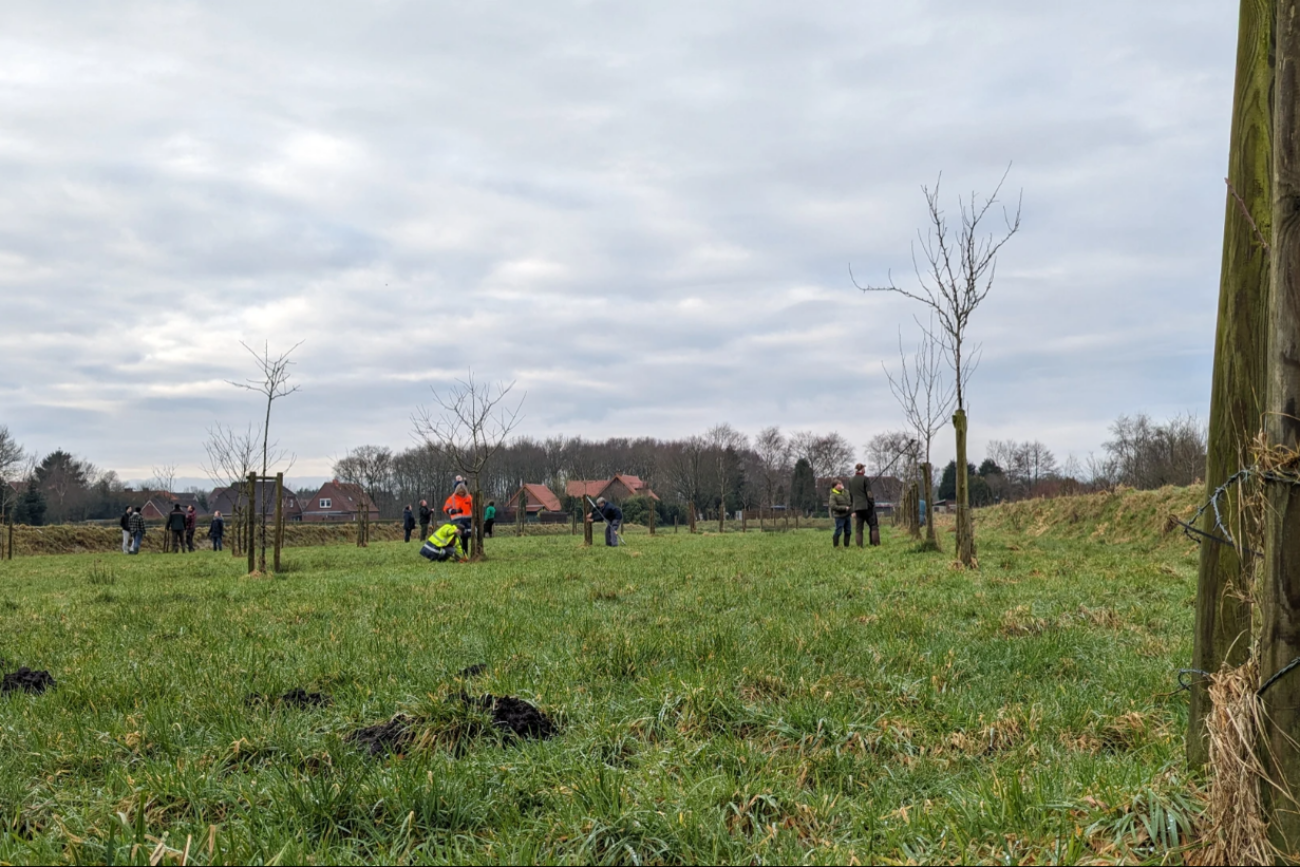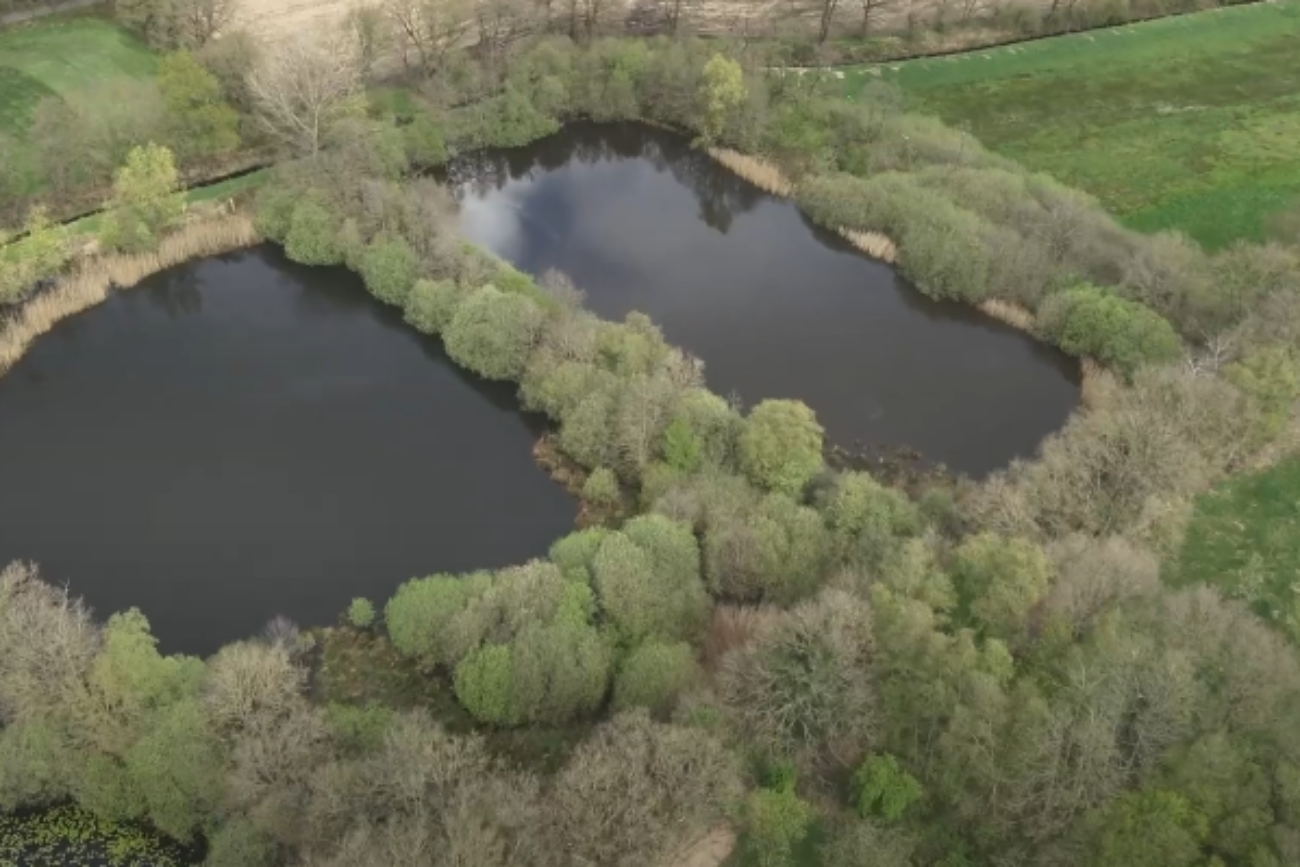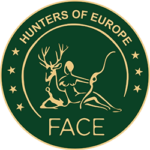The Hegering Voerde in the Kreisjägerschaft Wesel has been recognized for its outstanding contribution to biodiversity and habitat conservation, securing second place in the German Hunting Association’s (DJV) nationwide special prize, “Hunters Plant Diversity.” This achievement follows their 2022 Biotope Conservation Prize for North Rhine-Westphalia and highlights their innovative approach to sustainable wildlife management and ecological restoration. Their conservation concept focuses on two complementary aspects: the ecological enhancement of existing landscape structures and the creation of new habitats on unused field and economic paths.
Within a very short time, more than 110,000m² of unused urban field and farm roads, as well as structural compensation areas, were developed for conservation measures. Over the past five years, the Voerde hunters have planted more than 6,000 shrubs and bushes, creating hedges spanning 6 kilometers. In 2023 alone, they planted 80 scatter fruit trees and introduced a variety of wildflower meadow mixtures. Other biodiversity-boosting measures include the construction of Benjes hedges and deadwood piles for insects, as well as sand and gravel mounds for birds. These efforts have led to remarkable improvements in habitat quality, making the area more hospitable to rare species such as the swallowtail butterfly, meadow sage, and skylark, which are now increasingly observed in the landscape.
The concept of “already-there areas” is central to their success. These are areas within the landscape—such as underutilized urban field roads, agricultural paths, and structural compensation zones—that can be ecologically upgraded without compromising their primary function or causing conflicts with other land uses. By sowing species-rich regional seeds and planting native species, Voerde hunters have turned previously neglected areas into biodiversity hotspots. The care and maintenance of these areas are shared between hunters and farmers, fostering collaboration and ensuring sustainable results. Joint agreements and leases further secure these areas for conservation, allowing hunters to implement habitat improvements based on the needs of local wildlife and plant species.
The positive impact is evident, with the areas managed by hunters showcasing significantly higher biodiversity and structural diversity compared to the surrounding landscape. The ecological benefits extend beyond aesthetics, offering crucial refuges for small game and rare species. The initiative is a prime example of how hunting associations can act as stewards of the natural environment, combining traditional practices with modern conservation science.
EU Policy Relevance
The Voerde project aligns with key goals of the EU’s Biodiversity Strategy for 2030, which emphasizes reversing biodiversity loss, restoring ecosystems, and promoting the multifunctionality of rural landscapes. By upgrading unused areas and fostering biodiversity through the use of native plants and wildlife-friendly measures, the project exemplifies how local initiatives can contribute to the EU’s overarching vision for sustainable land management. Habitat fragmentation and intensive land use are major challenges addressed by the project, reflecting the EU’s aim to reconnect ecosystems and support pollinators and other vulnerable species.
Moreover, the Voerde hunters’ collaborative approach—working with farmers and securing long-term agreements—demonstrates how private initiatives can complement EU policies, such as the Common Agricultural Policy (CAP), by integrating biodiversity considerations into agricultural practices. Their success serves as a model for other hunting associations, illustrating how local efforts can make a tangible impact on Europe’s biodiversity and inspire further conservation-driven action.
The Voerde Hunting District hopes their achievements will inspire similar initiatives across Europe, showcasing the crucial role of hunters as active contributors to ecological balance and biodiversity conservation. Their recognition at the Federal Hunting Day 2024, where they received a certificate and a prize of €2,000, underscores the importance of their work and highlights the potential for replicating their success in other regions. By demonstrating how hunting can be a force for good, the Voerde project sets a benchmark for sustainable, wildlife-friendly landscape management.
For more information about the project, visit: wesel-voerde.ljv-nrw.de
Source:
Kris Kuckhoff, Ulrike Hansen, Dirk Gühnemann (all Hegering Voerde) and Werner Schulte (KJS Wesel).
